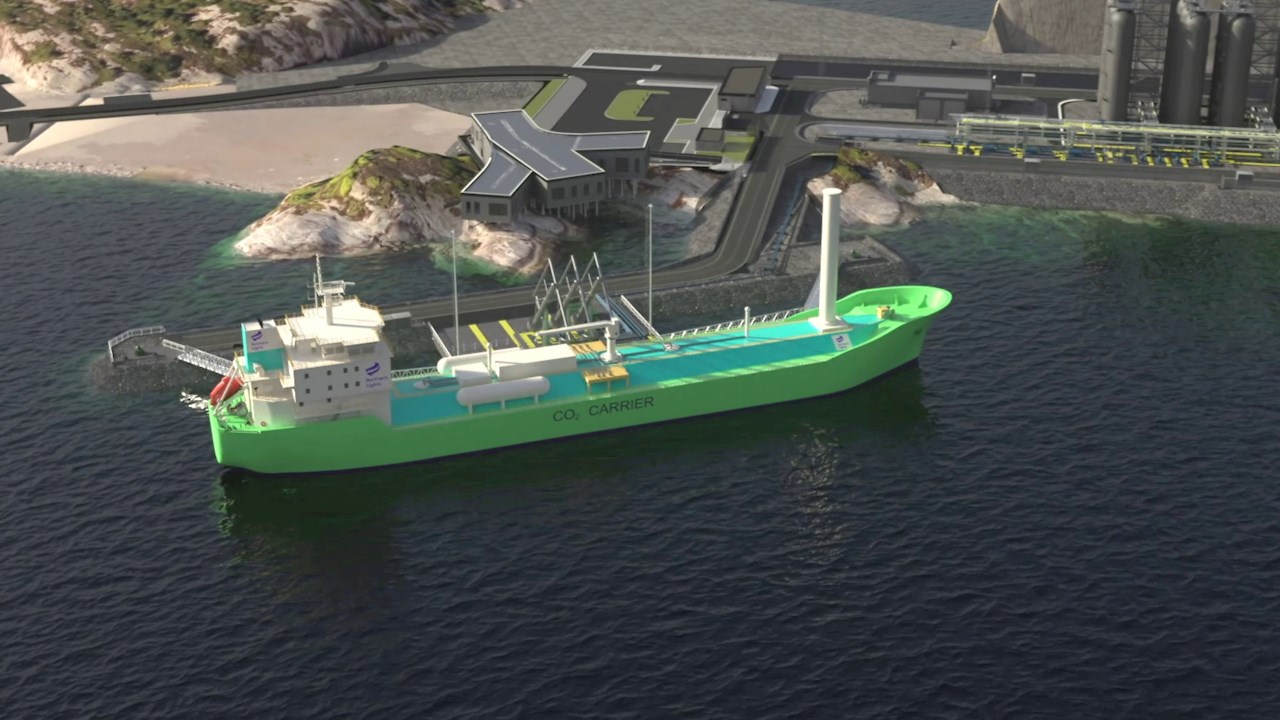- ABB’s leading technology will help increase fuel efficiency and reduce environmental impact for vessels transporting captured industrial emissions for long-term storage
- Permanent magnet shaft generator system will produce electric power for all onboard systems in the most energy- and cost-efficient way
- CO2 carriers will be key to Norway’s Northern Lights carbon capture and storage project, helping accelerate industrial decarbonization
ABB has been selected to deliver the shaft generator system with permanent magnet technology for the first dedicated CO2-storage vessels ever to be built. The vessels will be constructed by the Chinese shipbuilder Dalian Shipbuilding Industry Company (DSIC).

Due for delivery in 2024, the two vessels will support the Northern Lights carbon capture and storage (CCS) project by transporting greenhouse gas from industrial emitters to an onshore terminal in Øygarden, Norway. From there, the CO2 will be delivered by pipeline to dedicated reservoirs 2,600 meters under the seabed in the North Sea for permanent storage. Each of the 130-meter ships will be able to carry up to 7,500 cubic meters of liquefied CO2 in purpose-built pressurised cargo tanks.
ABB’s permanent magnet shaft generator system will increase the fuel efficiency of these vessels, reducing emissions as a result. Combining this technology with variable speed engines allows harvesting power for all onboard systems through the rotating force of the shaft, significantly improving performance compared to a traditional setup with fixed speed engines.
ABB announced in June 2022 that it will also deliver the main electrical, automation and safety systems for the Northern Lights project, enabling the remote operation of the terminal and ensuring that the facility runs at optimum efficiency. ABB’s permanent magnet shaft generator system further supports the project’s ethos by offering enhanced vessel fuel economy and reduced emissions.
“We look forward to collaborating with ABB on this landmark project, and ensuring that these innovative ships are also distinguished by operational excellence,” said a Dalian Shipbuilding Industry Company spokesperson. “As a longstanding partner of ABB, we are delighted to offer shipping companies the efficiencies, ease of installation and space savings enabled by permanent magnet shaft generator systems.”
Northern Lights, a joint venture between Equinor, Shell and Total, is the first CCS project to develop an open and flexible infrastructure to store CO2 from industries across Europe. The first phase of the project is due to be completed mid-2024 and will have the capacity to permanently store up to 1.5 million tons of CO2 per year, with the ambition to expand to over five million tons annually in a second phase.
CCS plays an important role in meeting global climate and energy goals. Today, CCS facilities around the world have the capacity to capture more than 40 million tons of CO2 from power and industrial facilities1. While the transport of trapped CO2 to permanent storage locations by pipeline is already deployed at large scale, it can present a challenge when the point of capture is further removed from a storage facility. Ships offers a flexible solution for long-distance CO2 transportation.
“Addressing the world’s energy challenges requires a constant push for innovation, and we are proud to make a difference with our leading technology. Transporting captured emissions by ships will be key to the success of the Northern Lights project, paving the way for further developments to help accelerate decarbonization in heavy industry sectors,” said Rune Braastad, Global Business Line Manager, Marine Systems at ABB Marine & Ports.
ABB’s permanent magnet shaft generator system is driven by the main engine, enabling increased efficiencies for vessels with fewer or smaller gensets and minimizing both capital and operating costs. In addition, ABB’s solution has a smaller weight and installation footprint compared to a conventional solution, as well as high reliability and redundancy to enable over 99 percent uptime, and built-in safety features to help protect crew and equipment. The system’s customizable design and interface make it suitable for any vessel type.
ABB’s scope of supply also covers full engineering and commissioning services. In addition, the vessels will have access to the ABB Ability™ Marine Remote Diagnostic System for continuous equipment monitoring, optimized machinery and planned-maintenance activities, and reduced maintenance costs.
Source: ABB